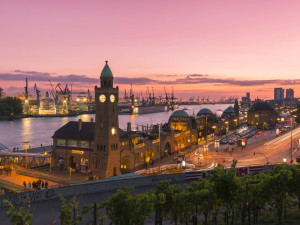 Landmarks around the world went dark for Earth Hour last weekend but many cities are making longer term moves towards sustainability. From Hamburg’s coffee pod ban to São Paulo’s ad-free streets – seven cities taking radical steps.
Landmarks around the world went dark for Earth Hour last weekend but many cities are making longer term moves towards sustainability. From Hamburg’s coffee pod ban to São Paulo’s ad-free streets – seven cities taking radical steps.
Banning coffee pods and bottled water – Hamburg – The north German city has banned single use coffee pods – which are hard (and sometimes impossible) to recycle – in government buildings and other public institutions such as schools and universities. The measure is part of a wider policy to tackle waste which includes a ban on public officials spending taxpayers money on bottled water and plastic cutlery.
Getting cars out of the city centre – Oslo – Oslo’s new government plans to ban cars from the city centre by 2019 as part of a plan to cut emissions in half by 2020 (as compared to 1990 levels). The city also plans to divest pension money from fossil fuels and be fossil free by 2050.
Better buses – Bogotá – The Colombian capital has led the way on sustainable transport, establishing TransMilenio, one of the most successful bus rapid transport networks. These buses are segregated on high speed lanes, creating low cost, high speed transport capable of moving masses of people through the city. The city also has an annual car free day, which has been running since 2000.
Mobility on demand – Helsinki – The Finnish capital has ambitious plans to create a “mobility on demand” system by 2025 by developing a smartphone app that provides people with access to cheap and more sustainable transport options such as carpools, taxis, bikes and ferries. The app would allow them to map and pay for journeys.
Big data city – Seoul – Seoul is considered a global leader on open data and boasts the world’s fastest broadband. Under the leadership of mayor Park Won-Soon, the city has announced every public space will have free wifi by 2017, including buses and subways. It has also embraced the sharing economy. ShareHub, supported by the mayor, is an online platform that connects users with sharing services, supports sharing enterprises and offers workshops to residents.
Paying cyclists – Milan – The Italian city, which has been affected by dangerous levels of pollution, has plans to pay commuters to cycle to work. Officials have said the plan will be modelled on a Frech pilot scheme which paid a small amount of money per mile. The city is also looking to develop an app to track cyclists. These proposals follow a government commitment to put €35m towards sustainable mobility solutions.
Advertising-free street – São Paulo – In 2006, São Paulo banned billboard advertising through the Clean City Laws after the mayor Gilberto Kassab called outdoor adverts a form of visual pollution. It was the pioneer for an ad banning movement: Chennai banned billboards in 2009, US states including Vermont and Alaska followed suit, and last year Tehran replaced 1,500 ad billboards with art for 10 days. To read more click here.




